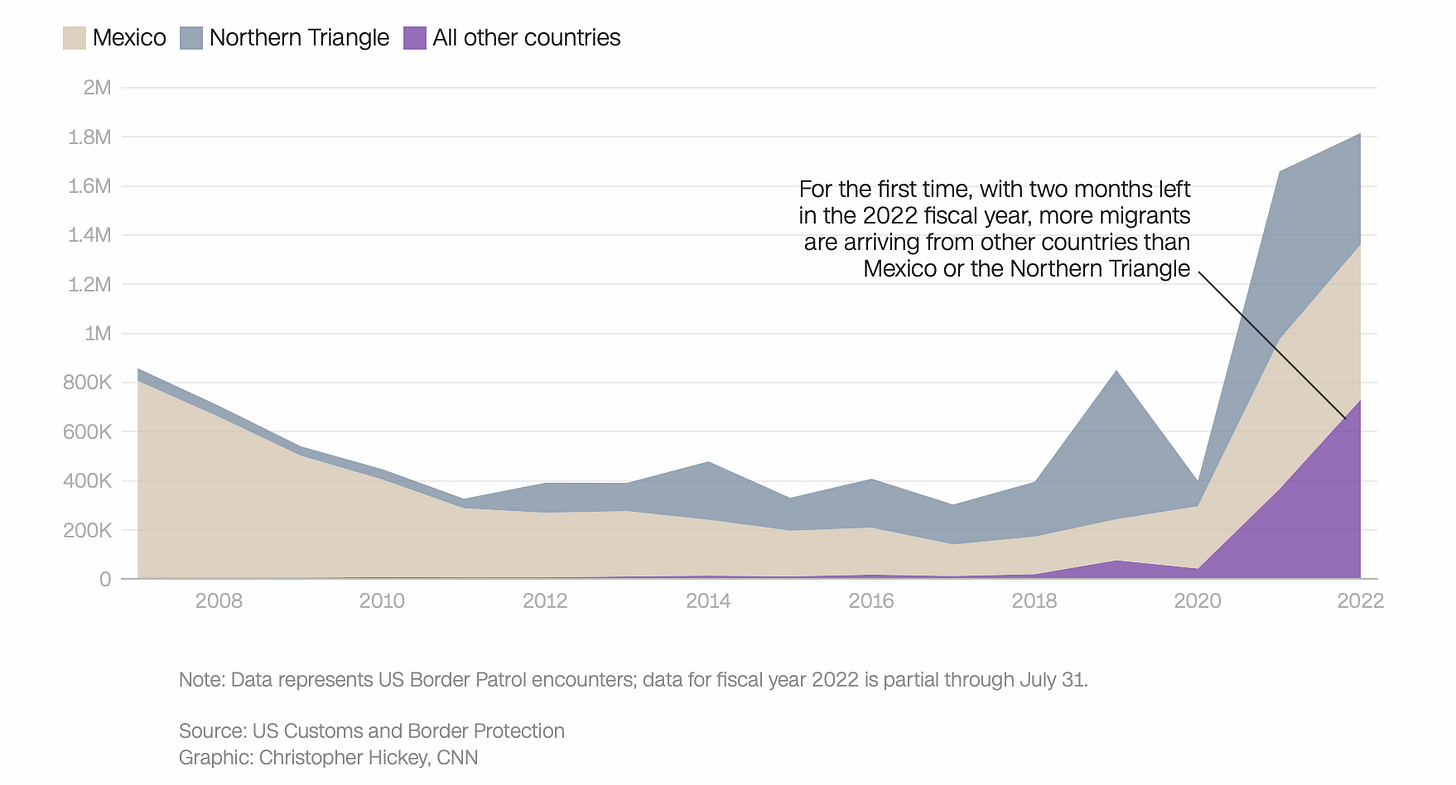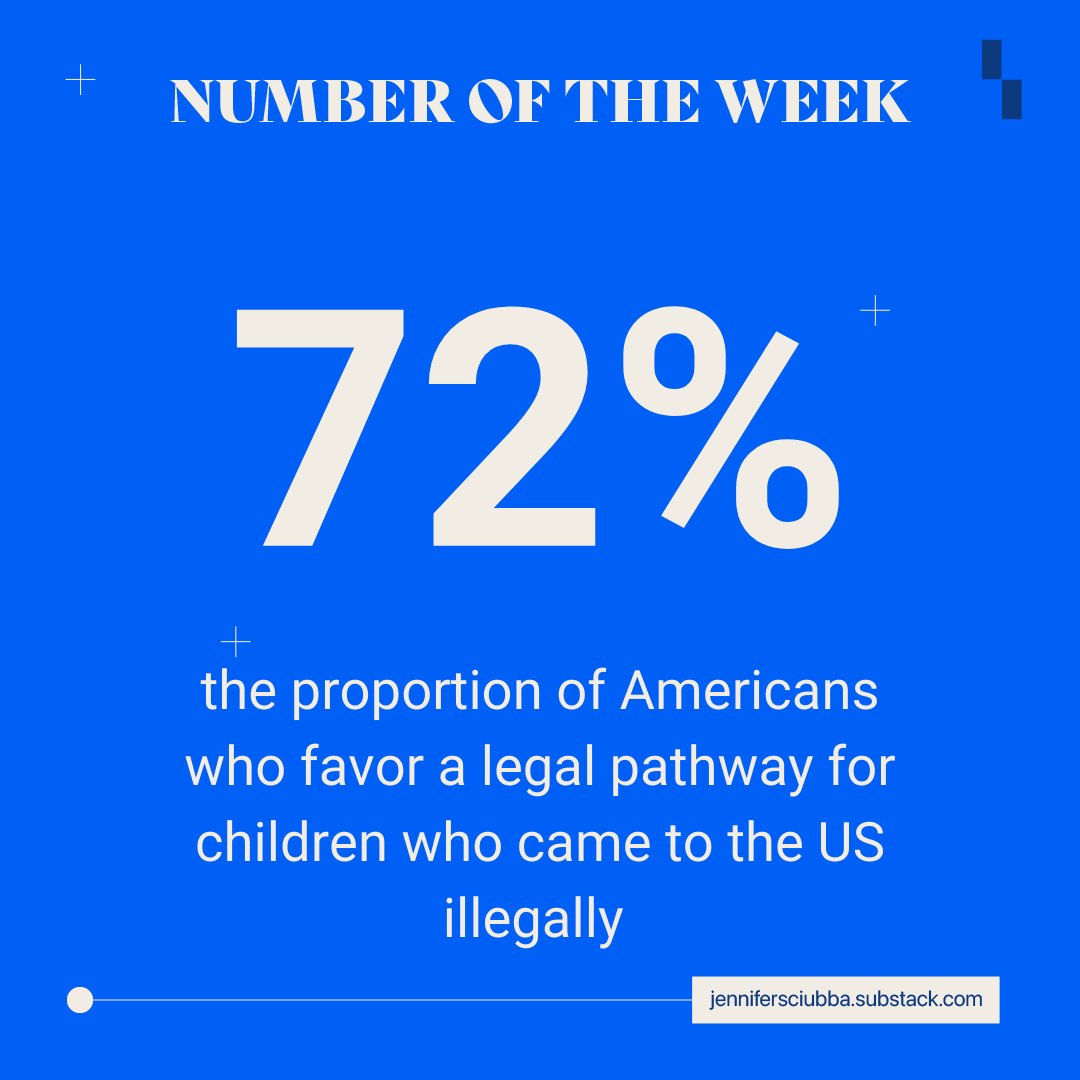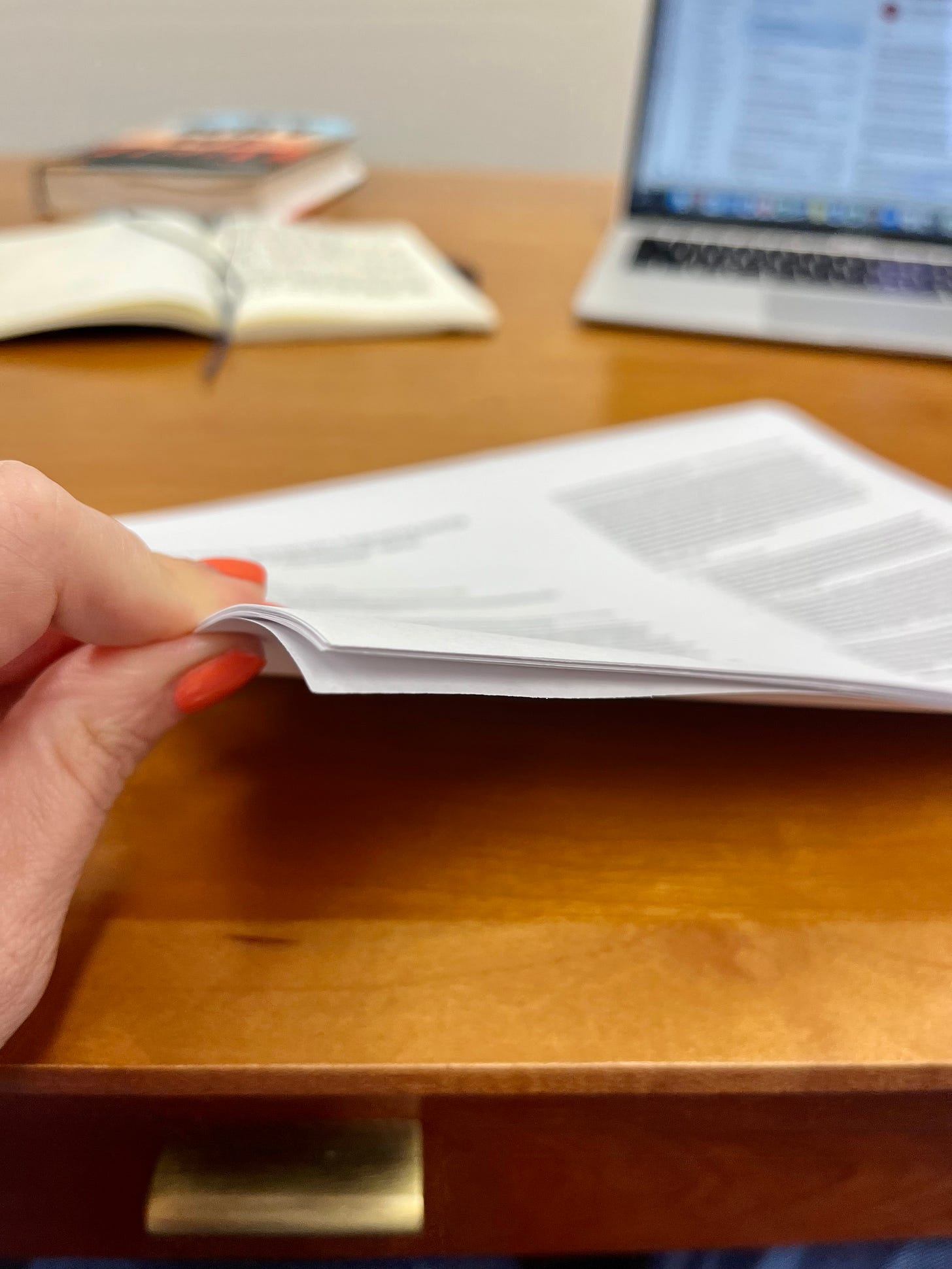Martha's Vineyard is no vacation for irregular migrants
Yet again, migrants become a pawn in a larger political game
Pew Research Center issued a report showing some pretty extreme partisan divides on immigration among Americans. On the whole, Republicans want more border security and deportations; Democrats want more pathways to legal status. Many scholars have shown it’s those divides that paralyze real immigration reform across democracies (see the work of James Hampshire, for ex.). But, the Pew report also shows some common ground, and I believe that’s where we should start in the political arena. In particular, 59% of those who lean left think “increasing security along the U.S.-Mexico border to reduce illegal crossings should be a very (44%) or somewhat (29%) important goal of U.S. immigration policy” and majorities across the board (72% total) think the US should find a legal path for those who came to the US illegally as children.
There’s been a tremendous spike in border encounters* at the southern US border, and while there’s a long history of migrants being bused out of border states en masse, lately these have been more deliberate and creative. The latest? Martha’s Vineyard. Republican-led states have been strategically moving migrants northward to send a message to liberal Democrats that something must be done to alleviate border pressures and under no circumstances, they argue, should the US repeal Title 42, which allows the US to immediately expel migrants coming from countries with communicable diseases.
This reminds me of two things. One, images of stranded migrants in wealthy vacation towns reminds me of the 2015 European migrant crisis, where coastal Italian and Greek towns were overwhelmed with a sudden influx of asylum-seekers from Syria, Afghanistan, and northern Africa. The tourist towns weren’t happy, but the migrants suffered the most—no ties to the local community, no place to shelter, no prospect of settling.
Second, I’ve been researching the history of US population policies for a new book project, and am struck by parallels with the bungled attempt to move Native Americans westward during the 1830s. This is chronicled in Claudio Saunt’s award-winning book, Unworthy Republic, which I’m currently reading. The dispossessed Native Americans were pawns in a political game between southern Slave states and the North, who ineffectively argued over how to move tribes westward in a way that would preserve the power balance between North and South. It was a completely bungled mess and of course thousands of Native Americans suffered and died. I’m saddened by how dehumanized migrants are in general, and that’s apparent even in the reporting on the US border today.
*Our migration data are far from perfect. The US measures “border encounters,” collected by Customs and Border Protection and the same person can be counted multiple times if they try to cross more than once, as they often do. Still, I think it’s fair to say there’s been a rise in people trying to cross into the US. Check out this graph from CNN:

Stats that have caught my eye lately:
33 million have been displaced in Pakistan’s floods, a number my brain can’t fathom. This has decimated health facilities and raised the risk of waterborne diseases. Climate change is deadly, and Pakistan’s tragedy is a prime example.
The diversity of Great Britain: When the Queen took the throne only 1 in 200 Britons were non-White; 1 in 7 were at last Census count (2011). I also enjoyed this NYT piece, “Mourn the Queen, Not Her Empire,” by Maya Jasanoff.
Native American life expectancy fell from 71.8 years to 65.2, in large part from Covid: “the average Native American person is now expected to live as long as the average American did in 1944”
Also notable: The gap between male and female life expectancy in the US widened to 6 years
Jessica Grose writes about motherhood for New York Times Opinion. We have to start paying more attention to what super-low fertility (less than 1.5 children per woman on average) is telling us about childbearing and the challenges Grose describes in her columns is relevant across such societies (think: South Korea, Taiwan, …and I’m worried the US is heading that way).
Find this newsletter useful? Your office can now subscribe! Click for a group subscription:
Personal update: I’ll be in residence part-time in DC this academic year on fellowship at the Wilson Center. I’ve only had 1 week in the office so far but it was GLORIOUS to focus on writing! As you can see, I have a long way to go before my next book is ready for the world…
Full disclosure: to help support this newsletter, I use Amazon Affiliate links. If you purchase using these links I get a little change in my pocket.













